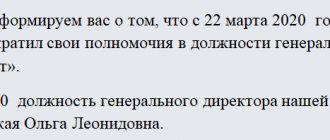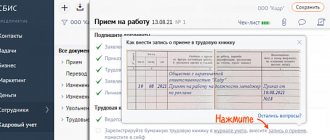Who is the CEO
The head of the company is an elected position and is appointed by the general meeting of employees of the enterprise or by the board of directors.
Considering the job responsibilities of the general director of the LLC, we note that his powers and working conditions are necessarily fixed in the employment contract for a certain period for which the manager is elected. At the end of the contract, the contract is either extended or a new manager is elected to this position, who assumes his position only after the conclusion of the contract. A manager at this level is responsible for all decisions made, which should be aimed at increasing the efficiency of the enterprise. The position is very responsible due to the fact that the responsibilities of the general director combine several strategic tasks:
- management;
- organization;
- planning;
- coordination;
- control.
III. Job responsibilities
To perform the functions assigned to him, the director of the enterprise is obliged to:
3.1. Manage, in accordance with the legislation of the Russian Federation, the production, economic and financial-economic activities of the enterprise, bearing full responsibility for the consequences of decisions made, the safety and effective use of the enterprise’s property, as well as the financial and economic results of its activities.
3.2. Organize the work and effective interaction of all structural divisions, workshops and production units, direct their activities towards the development and improvement of production, taking into account social and market priorities, increasing the efficiency of the enterprise, increasing sales volumes and increasing profits, quality and competitiveness of manufactured products, their compliance to international standards in order to conquer the domestic and foreign markets and meet the needs of the population for the relevant types of domestic products.
3.3. Ensure that the enterprise fulfills all obligations to the federal, regional and local budgets, state extra-budgetary social funds, suppliers, customers and creditors, including bank institutions, as well as economic and labor agreements (contracts) and business plans.
3.4. Organize production and economic activities based on the widespread use of the latest equipment and technology, progressive forms of management and labor organization, scientifically based standards of material, financial and labor costs, studying market conditions and best practices (domestic and foreign) in order to fully improve the technical level and quality products (services), economic efficiency of its production, rational use of production reserves and economical use of all types of resources.
3.5. Take measures to provide the enterprise with qualified personnel, rational use and development of their professional knowledge and experience, create safe and favorable working conditions for life and health, and comply with the requirements of environmental protection legislation.
3.6. Ensure the correct combination of economic and administrative methods of management, unity of command and collegiality in discussing and resolving issues of material and moral incentives for increasing production efficiency, application of the principle of material interest and responsibility of each employee for the work assigned to him and the results of the work of the entire team, payment of wages on time.
3.7. Together with labor collectives and trade union organizations, ensure, on the basis of the principles of social partnership, the development, conclusion and implementation of a collective agreement, compliance with labor and production discipline, and promote the development of labor motivation, initiative and activity of workers and employees of the enterprise.
3.8. Resolve issues related to the financial, economic and production activities of the enterprise, within the limits of the rights granted to it by law, entrust the management of certain areas of activity to other officials - deputy directors, heads of production units and branches of enterprises, as well as functional and production divisions.
3.9. Ensure compliance with the rule of law in the activities of the enterprise and the implementation of its economic relations, the use of legal means for financial management and functioning in market conditions, strengthening contractual and financial discipline, regulating social and labor relations, ensuring the investment attractiveness of the enterprise in order to maintain and expand the scale of business activity .
3.10. Protect the property interests of the enterprise in court, government and administrative bodies.
3.11. [Enter as appropriate].
General requirements
Top managers are not taught at any institute, university or other educational institution. But when applying for a job, a higher education in the field of economics, law or in the profile of the organization is usually required. A prerequisite is having management experience with a minimum of two years of experience required. The applicant must:
- know the legislation of the Russian Federation, regulations and legislative acts;
- master a computer and other professional programs;
- understand the specifics of the market;
- be able to draw up business plans and have experience in coordinating projects.
Since the job responsibilities of an enterprise director are complex and responsible, the applicant must have certain personal qualities:
- leadership and self-confidence;
- responsibility and stress resistance;
- organization and communication skills;
- endurance and ability to prioritize;
- Possession of strategic thinking and determination.
A detailed list of what is included in the main responsibilities of the director is set out in the job description, which is developed at the enterprise taking into account the specifics of the field of activity (Article 40 of the Federal Law No. 14 of 02/08/1998 “Sole executive body of the company”, the Constitution of the Russian Federation and the Labor Code of the Russian Federation).
What is a job description and why is it needed?
Labor legislation does not oblige employers to draw up and submit job descriptions to employees for signing. Moreover, the DI duplicates the main provisions of the employment agreement, which means there is no particular need for the document. This is the question on the one hand.
On the other hand, a job description is a document where the employee’s job functions, duties, rights and responsibilities are specified as much as possible. This contains a complete list of data that an employee will need during his working life. In fact, DI allows you to simplify the process of interaction between employer and employee. When it comes to the job description of the general director, the main attention is paid to his powers and contacts with subordinates.
The absence of a job description at an enterprise is not a violation of the law. This means that the company’s management cannot be held administratively or otherwise liable in this regard.
Functions
The work functions and responsibilities of the director are reduced to the tasks that are posed directly to the employee:
- organizing effective interaction between all divisions and structures of the entrusted enterprise and coordinating them;
- representing the interests of the enterprise, concluding contracts and signing relevant documents;
- planning the activities of the enterprise to increase profits, improve business development, increase production volumes and improve the quality of work;
- correct distribution of job responsibilities between deputies and subordinates, control over the execution of work.
The functional responsibilities of the general director in an LLC are to manage the company with unconditional compliance with all laws of the Russian Federation in the process of working activities.
Director's responsibilities
The duties of the General Director include:
- organization of the company’s work and effective interaction of all its structural divisions;
- organizing accounting and ensuring the submission of all necessary reports;
- formation of the organization’s staff, ensuring timely retraining of employees;
- ensuring the safety of the company's property;
- protection of LLC interests in court and authorities;
- obtaining the consent of the general meeting of LLC participants, the board of directors to carry out transactions when such an obligation is specified in the law or the company’s charter;
- convening the next (extraordinary) general meeting of participants, submitting a report on the activities of the company;
- monitoring employees' compliance with the requirements of the legislation of the Russian Federation, local regulations, job responsibilities, etc.
Rights
In order to perform the duties of a company director efficiently and in a timely manner, a certain set of capabilities is required. The manager has the right to:
- making decisions within their competence;
- bringing employees to disciplinary and financial liability;
- putting forward issues to the general meeting or board of directors;
- dismissal and hiring of employees;
- financial incentives for employees;
- representing the interests of the organization;
- disposal of the enterprise’s property within the framework of the agreement;
- preparation and signing of documents within its competence.
Requirements for a specialist
There are corresponding requirements for those holding a high position. Here are the points that a person performing the functions of general director must meet:
- Availability of specialized higher education corresponding to the main activities of the enterprise, company - legal, economic, technical, etc.
- Experience in a leadership position. Typically a minimum of 2 years.
- Experience in the area in which the corporation's main activities relate.
- Excellent knowledge of regulations and legislative acts that are related to the performance of the functions of the General Director.
- Confident knowledge of modern technology products - PCs, instant messengers, email, professional programs, etc.
Responsibilities
The job description clearly states what the responsibilities of the general director of the LLC are; it is drawn up on the basis of the Law “On Limited Liability Companies” dated 02/08/1998 No. 14-FZ (Articles 21, 35, 37, 40, 44, 47), Labor Code of the Russian Federation (Chapter 43) and Civil Code of the Russian Federation (Articles 53, 53.1). The areas of activity where a top manager is required are different, so the board of directors has the opportunity to independently develop a job description, taking into account the specifics of the enterprise and the company's charter. If we consider briefly the responsibilities of the director, it is necessary to mention:
- acting in the interests of the company and on its behalf;
- work on managing employees, correct distribution of responsibilities, issuing orders for hiring or dismissal;
- representing the company in government agencies, courts, tax authorities;
- control over compliance with the law in all areas of activity;
- studying, developing and implementing progressive methods of company management and new technologies.
Tips and tricks for writing a CEO job description
Any job description has a universal form and is provided to the employee in a standard form. The document is registered in the accounting journal and signed by the persons indicated in it. The development of documents should begin with a study of the structure of the enterprise, its divisions and the presence of management objects. The manager acts as a subject of management and coordinator. Since any instruction consists of several sections, it is worth considering the features of compiling each section in more detail.
Each DI must contain mandatory clauses and sections. Without this, it will not be considered an official document.
Responsibility
If the duties of the director of the organization are performed in bad faith, the employee bears administrative (according to the Code of the Russian Federation on Administrative Offenses), full material (according to Article 277 of the Labor Code of the Russian Federation), civil and legal (according to Article 44 of Law No. 14-FZ, Article 53.1 of the Civil Code RF), criminal liability (according to the Criminal Code of the Russian Federation) for:
- proper performance or failure to perform their official duties;
- causing harm and damage to the enterprise;
- violation of safety regulations and labor discipline;
- disclosure of commercial and official secrets.
Job description of the director of the enterprise
600 117180
We bring to your attention a typical example of a job description for a director of an enterprise, sample 2022. Typical job description for director of an enterprise
should include the following sections: general provisions of the instructions, job responsibilities of the director of the enterprise, rights of the director of the enterprise, responsibility of the director of the enterprise.
The job description of the director of the enterprise should reflect the following main points:
Job responsibilities of the director of the enterprise
1) Job responsibilities
. The director of the enterprise manages, in accordance with the current legislation, the production, economic and financial-economic activities of the enterprise, bearing full responsibility for the consequences of decisions made, the safety and effective use of the enterprise’s property, as well as the financial and economic results of its activities. And also, organizes the work and effective interaction of all structural divisions, workshops and production units, directs their activities to the development and improvement of production, taking into account social and market priorities, increasing the efficiency of the enterprise, increasing sales volumes and increasing profits, quality and competitiveness of manufactured products , its compliance with international standards in order to conquer the domestic and foreign markets and meet the needs of the population for relevant types of domestic products.
The director of the enterprise ensures that the enterprise fulfills all obligations to the federal, regional and local budgets, state extra-budgetary social funds, suppliers, customers and creditors, including bank institutions, as well as economic and labor agreements (contracts) and business plans.
The director of the enterprise must know
2) Director of the enterprise
when performing his official duties, he must know
: legislative and regulatory legal acts regulating the production, economic and financial-economic activities of the enterprise, resolutions of federal, regional and local government authorities and management, defining priority directions for the development of the economy and the relevant industry; methodological and regulatory materials of other bodies relating to the activities of the enterprise; profile, specialization and features of the enterprise structure; prospects for technical, economic and social development of the industry and enterprise; production capacity and human resources of the enterprise; production technology of the enterprise's products; tax and environmental legislation; the procedure for drawing up and agreeing on business plans for the production, economic and financial and economic activities of the enterprise; market methods of business and enterprise management; a system of economic indicators that allow an enterprise to determine its position in the market and develop programs for entering new markets; the procedure for concluding and executing economic and financial contracts; market conditions; scientific and technical achievements and best practices in the relevant industry; management of the economy and finances of the enterprise, organization of production and labor; the procedure for developing and concluding sectoral tariff agreements, collective agreements and regulating social and labor relations; labor legislation; rules and regulations of labor protection.
Requirements for the qualifications of an enterprise director
3) Requirements for the qualifications of the director of the enterprise.
A typical job description for an enterprise director should include a section entitled “Qualification Requirements.” For the director of the enterprise
— higher professional (technical or engineering-economic) education and work experience in management positions in the relevant industry of the enterprise for at least 5 years.
General provisions
1. The director of the organization belongs to the category of managers.
2. A person with a higher professional education and work experience in management positions of at least 5 years is appointed to the position of director of the organization.
3. The director of the organization is appointed and dismissed from office by ___ (by the founder of the organization, the General Meeting of Founders or another body)
4. During the absence of the director of the organization (business trip, vacation, illness, etc.), his duties are performed by a deputy (in his absence, a person appointed in the prescribed manner), who acquires the corresponding rights and is responsible for the performance of the duties assigned to him.
5. The director of the organization must know:
- Constitution of the Russian Federation;
- laws of the Russian Federation, regulations and decisions of the Government of the Russian Federation relating to the industry of the enterprise and its work;
- resolutions, orders, orders, other governing and regulatory documents of higher and other bodies affecting the issues of conducting production, economic and financial and economic activities of the enterprise;
- prospects for the development of this industry;
- specialization, profile, features of the enterprise structure;
- production technology of the organization’s products and the capabilities of its production facilities;
- methods of managing and managing an enterprise in a market economy;
- features of drawing up and coordination of business plans for the economic and financial-economic activities of the organization;
- features of developing programs for entering new markets;
- the procedure for organizing production and labor, developing and concluding employment contracts and regulating social and labor relations;
- fundamentals of economics, labor organization, production and management;
- legislation on labor and labor protection of the Russian Federation;
- rules and regulations of labor protection, safety, industrial sanitation and fire protection.
6. In his activities, the director of the organization is guided by:
- legislation of the Russian Federation;
- charter of the organization;
- this job description;
- internal labor regulations of the organization;
- decisions of ___ (organization founder, General Meeting of Founders or other body)
Job responsibilities of the director of the enterprise
Director of the organization:
1. Manages, in accordance with current legislation, all types of activities of the organization.
2. Organizes the work and effective interaction of production units, workshops and other structural divisions.
3. Ensures that the organization fulfills tasks in accordance with established quantitative and qualitative indicators, all obligations to suppliers, customers and banks.
4. Organizes the production and economic activities of the organization based on the application of methods of scientifically based planning of material, financial and labor costs, maximum mobilization of production reserves.
5. Takes measures to provide the organization with qualified personnel.
6. Promotes the best use of workers’ knowledge and experience, the creation of safe and favorable conditions for their work, and compliance with labor protection legislation.
7. Resolves all issues within the limits of the rights granted and entrusts the performance of certain production and economic functions to other officials - his deputies, heads of production units, as well as functional and production divisions of the organization.
8. Provides:
- Legality, timeliness and correctness of paperwork,
- Correct calculation and transfer of taxes and fees to the federal, regional and local budgets, insurance contributions to state extra-budgetary social funds, payments to banking institutions, funds for financing capital investments.
- Repayment of the organization's debts to banks on loans within the established time frame.
9. Monitors:
- establishing official salaries for employees of the organization.
- carrying out inventories of fixed assets, inventories and cash.
10. Interacts with banks on the placement of available funds on bank deposits (certificates) and the acquisition of highly liquid government securities, monitors the conduct of accounting operations with deposit and loan agreements, securities.
Rights of the director of the enterprise
The director of the organization has the right:
1. Act on behalf of the organization, represent its interests in relations with all structural divisions of the organization, as well as other organizations on economic, financial and other issues.
2. Conclude, amend and terminate employment contracts with employees in the manner and on the terms established by the organization’s Charter, the Labor Code of the Russian Federation, and other federal laws.
3. Request from the structural divisions of the organization and independent specialists the necessary information about the work of the organization.
4. Independently make decisions on rewarding distinguished employees and on bringing violators of production and labor discipline to financial and disciplinary liability.
5. Demand that employees perform their job duties and take care of the property of the employer and other employees, and comply with the internal labor regulations of the organization.
Responsibility of the director of the enterprise
The director of the organization is responsible in the following cases:
1. For improper performance or failure to fulfill one’s job duties provided for in this job description, within the limits established by the labor legislation of the Russian Federation.
2. For offenses committed in the course of their activities, within the limits established by the current administrative, criminal and civil legislation of the Russian Federation.
3. For causing material damage to the organization within the limits established by the current labor and civil legislation of the Russian Federation.
4. For using the property and funds of the enterprise in interests contrary to the interests of the founders.
Job description of the director of the enterprise - sample 2022. Job responsibilities of the director of the enterprise, rights of the director of the enterprise, responsibility of the director of the enterprise.
Responsibility “Organization of implementation”
Good work starts with careful organization.
If you want the work to be completed with the proper quality and within the required time frame, you need to pay close attention to the organization of this process. We must decompose our task down to the level of the simplest work assignments, while taking into account a number of conditions - from the level of qualifications of subordinates to the priority of a specific task within the general field.
We also need to decide on priorities, the optimal sequence of work, build a schedule and mark on it both the necessary control points and points for making a decision on clarifying the further progress of work. Perhaps the nature of the task suggests that it is appropriate to assess internal/external risks and develop appropriate preventive or reactive measures.
All these procedures must be consistent with both the content of the task itself and the timing of its completion. Otherwise, after a quick start, participants begin to stumble over unaccounted for obstacles, which sharply slows down the progress of the task. Lack of planning in this area can also lead to some important components not being implemented at all or being remembered at the last moment. As a result, problems are solved in a time-consuming, expensive and poor-quality manner.
If you act not as is customary, but as is correct, then the time spent on organizing the implementation is repaid many times over by the controllability of the process, the optimal use of structure resources and the quality of the work itself.
If you don’t have time to organize your work well, then you are in another “self-tightening loop”, trying to do at the expense of speed what should be solved by changing the approach. Of course, this will first require investing additional time, which is already in short supply. But otherwise there is no way to break this seemingly closed circle.
Well-organized work is done quickly, intensively and... unnoticed. In turn, shouting and fuss testify not to the enthusiasm of subordinates, but to the low quality of management.
Responsibility of an official
In addition to the rights, duties, and functions of the general director of an enterprise, there are also prescribed standards of responsibility. According to the law, they can be as follows:
- Responsibility to the company both for one’s actions and inaction, which led to losses and additional expenses.
- Responsibility for disclosure of data containing commercial or official secrets.
- Responsibility for negligent, untimely, incomplete performance of duties and functions of the general director of the company, as well as for failure to fulfill them.
Responsibility: “Building interpersonal relationships”
Depending on the goals and nature of the tasks facing the company, one or another type of relationship in a team can be either good or bad.
This parameter is relative and depends on how much these relationships contribute to effective work. Therefore, it is a mistake to strive for some mythical good climate in the team. Perhaps an even greater mistake would be to assume that the better the relationship, the more effective the work will be. Why do we often have such an illusion? It is believed that if employees are on good terms with each other, then they will easily communicate on work issues, calmly and constructively negotiate controversial issues, there will be no quarrels and gossip in the team, everyone will be pleasant and happy to work, people will be less tired, and no one wants to quit. However, in teams where a similar style of relationship develops, additional factors inevitably arise:
- mutual demands are reduced.
- mutual obligations become more significant than to the company and the immediate supervisor.
- information is hidden from the leader, and if the leader is part of the “commonwealth”, then from higher authorities (organizations).
- mutual responsibility flourishes.
We do not want to say that relationships in the team should be bad.
This won't do any good either. Where is the way out? The leader must be able to maintain the proper balance between cooperation and competition in the team. Interpersonal relationships are not a given, but a controlled substance; the concepts of “good” and “bad” are quite arbitrary. The whole question is in the ranking of your own or corporate criteria, in the absence of which you will use your own.
Responsibility "Analyze results"
Fulfilling this responsibility seems to be a matter of course.
However, the results of their work are not always subject to conscious analysis. This is largely due to the initial lack of correctly formulated work goals. But even where goals have been set, analysis of intermediate and final results is often missing. Analysis of performance results, of course, is carried out along the way, but is not recorded anywhere. The human psyche is structured in such a way that he always subconsciously strives to avoid an unwanted decrease in self-esteem and therefore tends to attribute flaws to various external causes. Any results seem optimal and the only possible. In this regard, we recommend that you analyze intermediate and final results on a regular basis, scheduling this as a mandatory procedure. Although this habit sometimes spoils the mood, it significantly increases management efficiency.
Responsibility “Ensuring interaction”
No matter how carefully you organize everything, some obstacles that were not taken into account at the preliminary stage or new factors will inevitably appear on the way to your goal.
All of them require consideration, additional information, and even corrections to the original disposition. Previously distributed powers cannot take into account the unknown, and the right to independently resolve newly emerging issues can only be delegated to those who are tried and trusted. Therefore, employees need periodic contact with their manager.
In addition, your subordinates need to interact with their colleagues on a “horizontal” level, both within their structure and with access to other departments.
If your subordinates have a high level of performance discipline, the task becomes somewhat simpler. After completing the process of assigning responsibilities, it is enough to agree that if they encounter any obstacle and/or unexpected factor, they will immediately signal it to you. But we must not forget to agree on this.
It is also necessary to remember that any work must be controlled - even that which does not initially raise surprises and does not require joint action. If the manager is inclined to neglect this, then the final or intermediate result may simply be absent, even for the most objective reasons. The methods and intensity of control depend on the qualifications and discipline of subordinates, and in addition - on the characteristics of the task.








